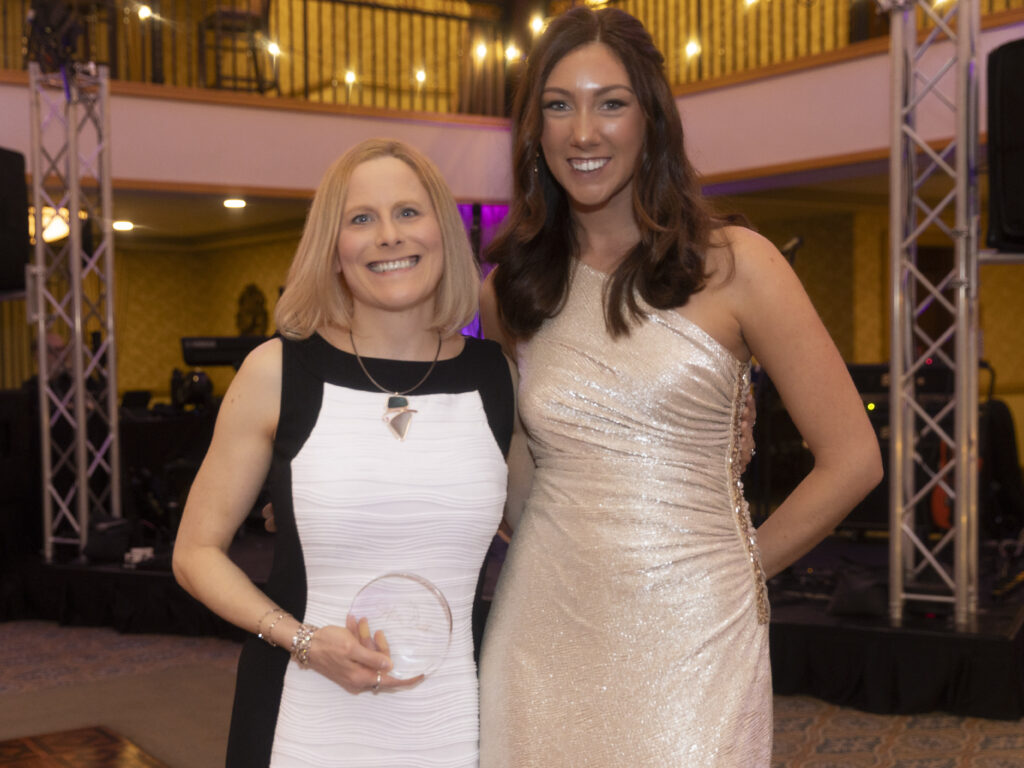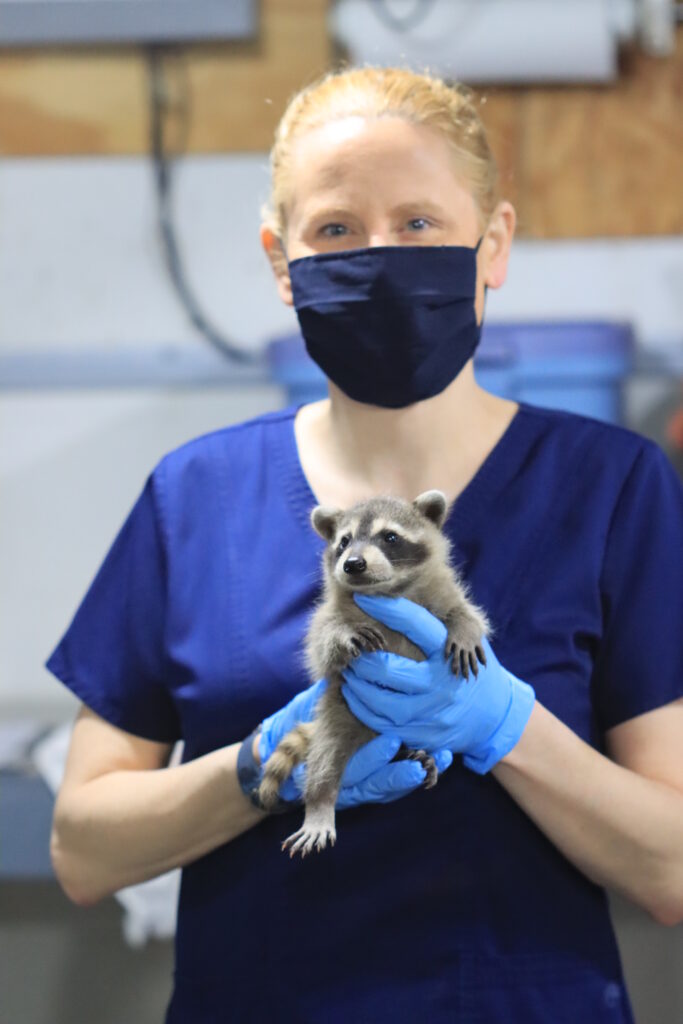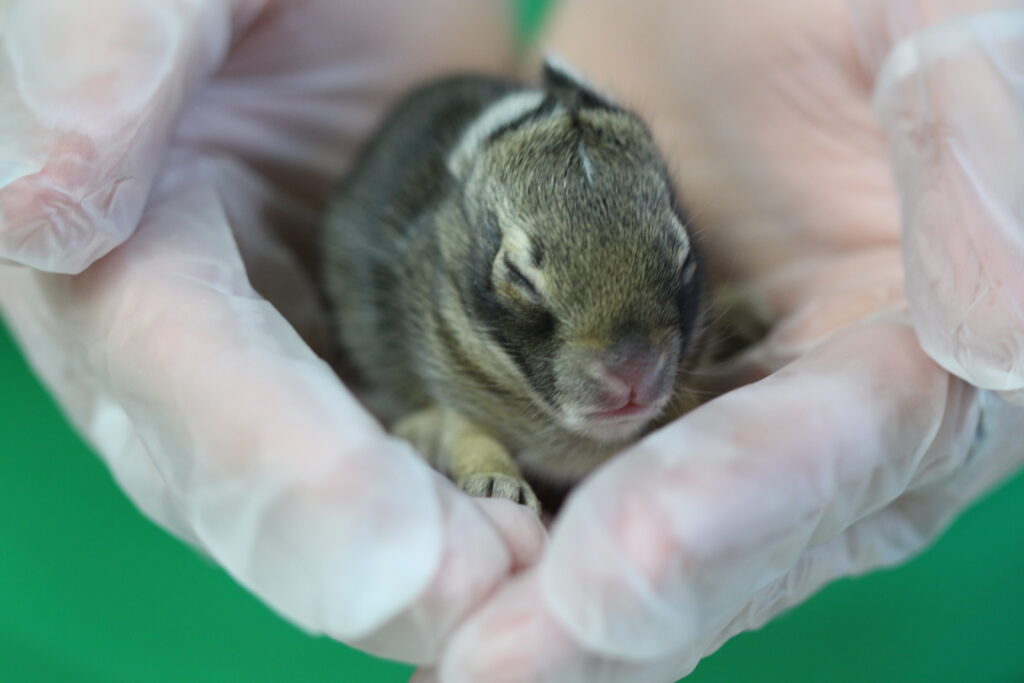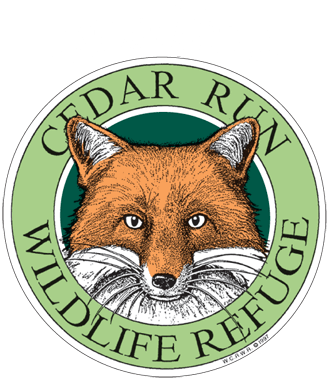Lori Swanson has been named the South Jersey Young Professional Association’s (SJYPA) 2024 Individual Halo Ball Award Winner!
 The honored award is bestowed upon a young professional who exemplifies an extraordinary commitment to the betterment of South Jersey. SJYPA is a group of young professionals who are investing in making a lasting, positive impact on our community and have been holding the Halo Ball for several years raising thousands of dollars for local nonprofits.
The honored award is bestowed upon a young professional who exemplifies an extraordinary commitment to the betterment of South Jersey. SJYPA is a group of young professionals who are investing in making a lasting, positive impact on our community and have been holding the Halo Ball for several years raising thousands of dollars for local nonprofits.
She was recently honored at the 2024 SJYPA Halo Ball Party with a Purpose on February 24th, 2024, where they raised funding for local nonprofit organizations that make a big impact in South Jersey. This year’s charity event raised funding for two great organizations, HopeWorks & Paws Healing Heroes. Lori Swanson is pictured with SJYPA President, Jeannette Eckhardt.
SJYPA represents the best and brightest working men and women (ages 21-45) in South Jersey, uniting these talented individuals who are invested in making a lasting, positive impact on our community. Learn more about the South Jersey Young Professional Association (SJYPA) and its community impact, at sjypa.org.
Lori’s commitment to wildlife rehabilitation and our community is unwavering.
Lori Swanson is the Director of Wildlife Rehabilitation at Woodford Cedar Run Wildlife Refuge, since 2012. Lori began volunteering at Woodford Cedar Run Wildlife Refuge in 2007 and quickly became seasonal staff and an apprentice in the Wildlife Rehabilitation Hospital. In the winter of 2011, Lori became the Assistant Manager of the Wildlife Rehabilitation Hospital and subsequently became the Director of Wildlife Rehabilitation in December 2012.
In her role as the Director of Wildlife Rehabilitation at Cedar Run, she directly oversees the treatment, care & diet plans for all of the over 6,000 wildlife patients treated annually, and over 55 non-releasable Wildlife Ambassadors that permanently call Cedar Run home. She oversees the animal intake process, Wildlife Hospital staff, and Wildlife Care Internship Program.
Lori has a Bachelor’s Degree in Biology and a Master’s Degree in Environmental Studies, and for nine years worked in human genetic testing laboratories before becoming a full-time member of the Cedar Run staff. She has completed internships at the Pinelands Institute of Rutgers University and at the Philadelphia Zoo under their Education program working with a variety of reptiles. Lori also spent two months in South Africa in 2011 volunteering at a wildlife rehabilitation clinic near Durban.

Throughout her 12-year career at Cedar Run (plus 4 years as a volunteer), Lori has:
- Oversees operations, seen, and treated over 55,000 wildlife patients in the Cedar Run Wildlife Rehabilitation Hospital.
- Heads up the Wildlife Rehabilitation Hospital intake process includes directly engaging with the public answering phone calls and wildlife-related questions, as well as training staff, volunteers, and interns to do the same at the Wildlife Hospital; servicing over 17,000 animal-related phone call inquiries to the Wildlife Hospital alone annually.
- Oversees the care of over 6,000 injured and orphaned wildlife patients across over 150 different NJ native and migratory species that Cedar Run treats annually; including diet plans, medical treatments, and care plans.
- Oversees the care of over 55 non-releasable Wildlife Ambassadors that live permanently at Cedar Run.
- Taught and influenced many who have come through the Wildlife Rehabilitation Hospital; 144 student interns and over 2,400 individuals that she has educated and impacted to help increase Cedar Run’s overall mission and impact in the state of New Jersey.
- Developed & refined emergency protocols and processes to protect resident wildlife and wildlife patients from the devastating effects of Highly Pathogenic Avian Influenza (HPAI).
- Recently with 2 wildfires over the last year within miles of Cedar Run, Lori led the charge on developing protocols and staff training for on-site emergency response, such as wildfires.
A wide variety of wildlife are treated at Cedar Run, including songbirds, owls, hawks, ducks, raccoons, rabbits, squirrels, white-tailed deer, fox, and opossums. With over 150 different species treated annually, each animal patient that comes into our Wildlife Rehabilitation Hospital is thoroughly examined to determine the best course of treatment, and the level of treatment required varies depending upon each animal’s specific situation. Each animal patient requires a different level of care and the cost of treatment can quickly accumulate. Lori has and continues to have a direct influence on the life-saving treatment and care plans of these injured and orphaned wildlife. She continues to make a direct impact on our local communities, ecosystems, and habitats by releasing healthy and rehabilitated wildlife back into the wild.

Lori Swanson’s quick response to implement emergency protocols around HPAI has helped further the impacts of wildlife care.
In late winter of 2022, our wildlife team heard the news that Highly Pathogenic Avian Influenza (HPAI) was affecting birds in North America. Historically HPAI had mostly affected poultry, but this devastating strain was being seen in numerous wild species of birds (waterfowl, hawks, owls, and more continue to be affected), causing many animals to die within days of exposure. With so many birds of prey on-site as Wildlife Ambassadors and as patients, Lori headed up the emergency protocols immediately to try to ensure the safety of the wildlife in Cedar Run’s care. Resident waterfowl were pulled from the lakeside enclosures and moved to enclosures on land that could be more protected from free-ranging waterfowl. Enclosures of susceptible grounded birds were partially wrapped with plastic to avoid close interactions with wild birds. And most importantly, Lori instituted specific PPE protocols when staff and volunteers entered resident bird enclosures. There were separate intake procedures, linens, dishes, medical equipment, trash cans, etc, in order to not spread this disease. Working in so many separate locations and keeping up with biosecurity measures has been time-consuming and expensive, but also completely necessary for the health of our wildlife in care and those that call Cedar Run home. Many centers around the country made the difficult decision to stop taking birds during this outbreak, but Cedar Run, leadership, and Lori wanted to be able to continue to provide this critical resource to the community and our wild birds.
These protocols will continue at Cedar Run until we receive the “all clear” from our governing organizations telling us that the HPAI outbreak has subsided. HPAI precautionary measures have affected 13% of Cedar Run’s at-risk wildlife patients in our Wildlife Rehabilitation Hospital and 64% of our permanent resident Wildlife Ambassadors. Woodford Cedar Run Wildlife Refuge and Lori Swanson are and always will be, committed to providing quality care to the native wildlife of New Jersey and migratory species, under any circumstance. Due to these precautions that continue to evolve for the foreseeable future, Lori and the team have been able to protect our community and wildlife from this deadly disease. There have not been any reported cases seen or treated at Cedar Run.
A teacher, a leader, a mentor.
 Lori has not only made a direct impact on local wildlife but also on the volunteers and interns who help support Cedar Run’s mission and efforts. Lori Swanson has been a great leader and inspiration to those who have worked with her in any capacity. While the day-to-day tasks at hand are demanding both physically and mentally working at a Wildlife Refuge, between evaluating and treating wildlife patients in all different stages of trauma, working with the public to educate and provide emotional support for those who have never seen a wild animal in need of help, or making sure that the Wildlife Rehabilitation Hospital is clean and well-run, Lori will still take the time to teach volunteers, interns, and staff about what she is doing and why it is important.
Lori has not only made a direct impact on local wildlife but also on the volunteers and interns who help support Cedar Run’s mission and efforts. Lori Swanson has been a great leader and inspiration to those who have worked with her in any capacity. While the day-to-day tasks at hand are demanding both physically and mentally working at a Wildlife Refuge, between evaluating and treating wildlife patients in all different stages of trauma, working with the public to educate and provide emotional support for those who have never seen a wild animal in need of help, or making sure that the Wildlife Rehabilitation Hospital is clean and well-run, Lori will still take the time to teach volunteers, interns, and staff about what she is doing and why it is important.
On average each year, there are 12 Wildlife Care Interns per summer, over 250 Volunteers who rotate in 4-hour shifts, and over 12 seasonal and full-time Staff Members who are directly working at Cedar Run’s Wildlife Rehabilitation Hospital, who need to be trained, re-trained with updated protocols, and build a relationship with our Wildlife Rehabilitation Hospital leadership. Several of these interns and volunteers were welcomed into highly competitive Veterinarian University programs and opened up their own veterinary and animal care practices.
“For the next three months as a wildlife intern, Lori taught me everything I knew about medicine and animal care. Alongside all of these skills, Lori told me about her life, her love for animals and providing them with care and her path to wildlife medicine. I quickly realized that when I grew up I wanted to be Lori – or something Lori adjacent, a wildlife veterinarian. Lori’s support and mentorship didn’t end after I left Cedar Run. I was in for a challenging expedited road to veterinary school and Lori helped me by continuing to teach me about our wildlife patients, and continues to be a great mentor.”
– Caroline, past Cedar Run Wildlife Care Intern & Volunteer.
“All the opportunities that I have been allowed at Cedar Run have given me invaluable hands-on experience in the animal care field that I have wanted to work in for as long as I can remember. Lori throughout this time has not only given me the opportunities, but supported me through other internships and many, many job applications by doing everything she could to help me take the next step in my career. The animal care field is not an easy career field to get into or to work in. Not everyone can fully understand & support someone in it. She’s always willing to help someone else reach their career goals. Lori has not only become a professional mentor and role model for me, but she has become a friend.”
– Jenna, Enrichment Coordinator & Hospital Shift Supervisor.
Through the treatment and release of migratory species, some of the wildlife we save can travel as far south as Florida, Mexico, Costa Rica, and beyond, further extending the geographic impact of the organization and Lori’s work and commitment.


